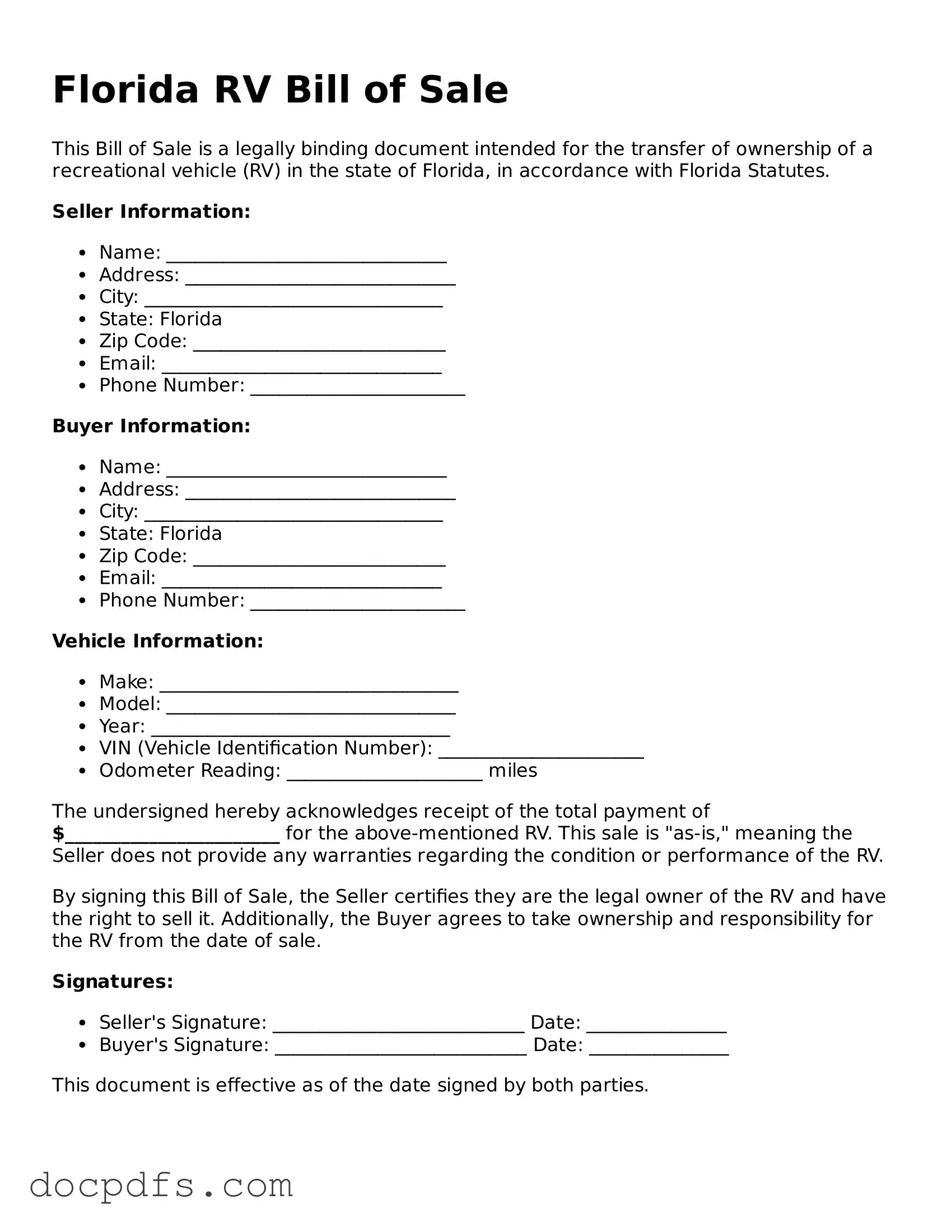What is a Florida RV Bill of Sale?
A Florida RV Bill of Sale is a legal document that serves as proof of the sale and purchase of a recreational vehicle (RV) in the state of Florida. This document includes essential information about the transaction, such as the details of the buyer and seller, the RV's identification, and the sale price. It protects both parties by providing a record of the agreement.
Why is a Bill of Sale important?
The Bill of Sale is crucial for several reasons:
-
It acts as a receipt for the transaction.
-
It helps establish ownership, which is essential for registration and titling.
-
It provides legal protection in case of disputes regarding the sale.
-
It can be required by the Florida Department of Highway Safety and Motor Vehicles for registration purposes.
The following information should be included in the Florida RV Bill of Sale:
-
Full names and addresses of both the buyer and seller.
-
Detailed description of the RV, including make, model, year, and Vehicle Identification Number (VIN).
-
Sale price and payment method.
-
Date of the transaction.
-
Signatures of both parties.
Do I need to have the Bill of Sale notarized?
While notarization is not a strict requirement for the Florida RV Bill of Sale, it is highly recommended. Having the document notarized adds an extra layer of authenticity and can help prevent future disputes. If you plan to register the RV, check with your local DMV for specific requirements.
Can I use a generic Bill of Sale template?
Yes, you can use a generic Bill of Sale template, but it is advisable to ensure that it meets Florida's specific requirements. Customizing a template to include all necessary details about the RV and the transaction will help protect both parties. Always review the document for completeness before signing.
How do I register my RV after the sale?
To register your RV after the sale, follow these steps:
-
Gather necessary documents, including the signed Bill of Sale, proof of identity, and any lien release if applicable.
-
Visit your local Florida Department of Highway Safety and Motor Vehicles office.
-
Complete the registration application form.
-
Pay the required fees.
Once registered, you will receive a new title in your name.
What should I do if I lose the Bill of Sale?
If you lose the Bill of Sale, it is important to act quickly. You can request a duplicate from the seller if they are willing to provide one. If that’s not possible, you may need to create a new Bill of Sale, including all the original transaction details. Ensure both parties sign the new document for validity.

